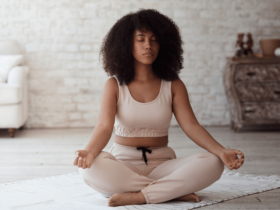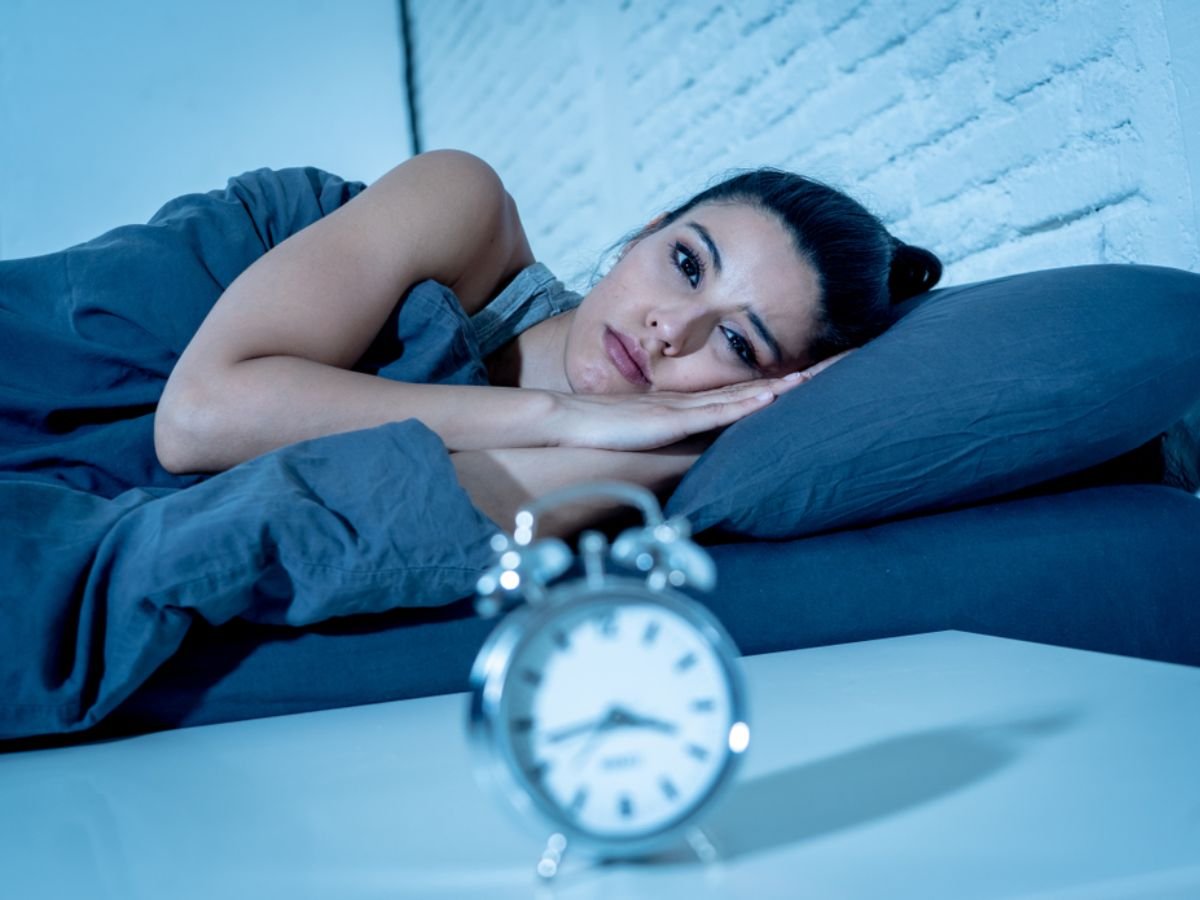Have you ever found yourself feeling more anxious or irritable after a poor night’s sleep? You’re not alone. The link between sleep and anxiety is more than just a coincidence—poor sleep habits can significantly affect your mental health. If you struggle with anxiety, improving your sleep may be one of the most effective ways to reduce your symptoms and regain balance. Here we’ll explore how sleep and anxiety are interconnected and provide actionable strategies to improve your sleep habits for better mental health.
How Sleep Impacts Anxiety
Sleep and anxiety share a complex, bidirectional relationship. Anxiety can make it harder to fall asleep or stay asleep, while lack of sleep can exacerbate feelings of anxiety. The underlying mechanisms often involve stress hormones, emotional regulation, and brain function, which are all impacted by the quality and quantity of sleep.
The Science Behind Sleep and Anxiety
Research shows that sleep deprivation increases the production of cortisol, the body’s primary stress hormone. Elevated cortisol levels are linked to higher anxiety, as the body remains in a constant state of stress. A study by the American Psychological Association found that people who experience chronic sleep disturbances are more likely to develop anxiety disorders.
Conversely, anxiety can create a vicious cycle that disrupts sleep. When anxiety levels are high, the body may enter a heightened state of alertness, making it difficult to relax or fall asleep. A 2017 study published in Sleep Medicine Reviews showed that individuals with anxiety disorders tend to experience longer periods of wakefulness and lower sleep quality, which further contributes to mental distress.
How to Break the Cycle Between Sleep and Anxiety
1. Establish a Consistent Sleep Schedule
The body thrives on routine, and irregular sleep patterns can throw off your internal clock, making anxiety symptoms worse. Establishing a regular sleep schedule helps regulate circadian rhythms, making it easier for your body to fall asleep and stay asleep.
Actionable Tip:
Try going to bed and waking up at the same time every day, even on weekends. This consistency helps synchronize your body’s natural sleep-wake cycle, leading to better sleep quality and reduced anxiety.
2. Create a Relaxing Bedtime Routine
A calming pre-sleep routine can signal to your brain that it’s time to wind down, making it easier to transition from a state of alertness to relaxation. Avoid stimulating activities such as checking emails or watching TV before bed.
Actionable Tip:
Incorporate relaxing activities like reading a book, practicing deep breathing, or doing light stretching for 20-30 minutes before bed. Avoid blue light from screens, as it can interfere with the production of melatonin, a hormone that regulates sleep.
3. Optimize Your Sleep Environment
Your sleep environment plays a crucial role in sleep quality. Disruptive noises, uncomfortable temperatures, or excessive light can make it harder for you to fall asleep and stay asleep, exacerbating anxiety.
Actionable Tip:
Ensure your bedroom is quiet, dark, and cool. Consider using earplugs, blackout curtains, or a white noise machine if necessary. A comfortable mattress and pillows can also improve sleep quality.
4. Limit Caffeine and Alcohol Consumption
Both caffeine and alcohol can interfere with your sleep patterns, especially if consumed later in the day. Caffeine is a stimulant that keeps you alert, while alcohol may make you feel sleepy initially but disrupts your sleep later in the night.
Actionable Tip:
Avoid consuming caffeine or alcohol at least 4-6 hours before bedtime. Opt for a calming herbal tea like chamomile or lavender if you need a soothing drink before bed.
5. Manage Stress During the Day
Chronic stress is a major contributor to both sleep disturbances and anxiety. By addressing stress throughout the day, you can reduce the overall burden on your mental health, making it easier to sleep at night.
Actionable Tip:
Incorporate stress-reducing activities such as exercise, meditation, or journaling into your daily routine. Even taking short breaks during the day to breathe deeply and relax can help manage anxiety levels and improve sleep.
Benefits of Improving Your Sleep for Anxiety
1. Reduced Anxiety Symptoms
Improved sleep leads to lower cortisol levels and a more balanced nervous system, which can significantly reduce feelings of anxiety. A study published in JAMA Psychiatry found that individuals with anxiety disorders who improved their sleep quality showed significant reductions in anxiety symptoms.
Research Insight:
Better sleep has been shown to enhance emotional regulation. When you sleep well, your brain processes emotions more effectively, helping you respond to stressors in a calm and measured way.
2. Enhanced Cognitive Function and Focus
Getting sufficient quality sleep improves cognitive function, memory, and focus. Anxiety often leads to difficulty concentrating and brain fog, which can further fuel stress. By improving your sleep habits, you can regain mental clarity and a sharper focus.
Benefit Highlight:
Sleep plays a critical role in memory consolidation and decision-making. When you’re well-rested, you’re better equipped to make rational choices and approach problems with a calm, clear mindset.
3. Improved Emotional Well-being
Sleep allows your brain to process and regulate emotions, reducing emotional reactivity and irritability. People who prioritize their sleep are better able to maintain a positive outlook and manage their emotions, leading to improved mental health.
Personal Story:
John, a long-time sufferer of anxiety, found that after making sleep a priority—by establishing a consistent bedtime routine and reducing stress—his anxiety symptoms were significantly reduced, and he felt more emotionally balanced throughout the day.
How to Implement These Solutions in Daily Life
1. Start Small – Gradually Adjust Your Sleep Habits
Making drastic changes to your sleep schedule all at once can be overwhelming. Instead, begin by making small adjustments to your routine, such as going to bed 15 minutes earlier each night or reducing screen time before bed.
Real-Life Example:
Samantha, a busy professional, struggled with falling asleep due to late-night work. By gradually reducing her screen time and setting a 10:00 PM bedtime, she was able to improve her sleep quality and reduce her anxiety over time.
2. Track Your Progress
It can be difficult to see the improvements in your sleep-anxiety levels without tracking them. Keep a sleep journal to monitor your bedtime routine, the quality of your sleep, and your anxiety levels each day.
Actionable Tip:
Use a sleep tracking app or simply jot down your experiences in a journal. Over time, you’ll be able to identify patterns and make further adjustments to improve both your levels.
3. Seek Professional Help If Needed
If anxiety or sleep problems persist despite implementing these changes, it may be helpful to seek guidance from a therapist or a sleep specialist. Cognitive Behavioral Therapy for Insomnia (CBT-I) is a highly effective treatment for sleep disorders and anxiety.
Final Thoughts
Improving your sleep habits can significantly reduce anxiety and promote better mental health. By making small, consistent changes to your routine—such as creating a relaxing bedtime environment, limiting caffeine, and managing stress throughout the day—you can break the cycle of poor sleep and anxiety. If you’re ready to reclaim your peace of mind, start implementing these strategies today. Let us know how these tips work for you or share your own experiences in the comments below!















1 Comment
View Comments